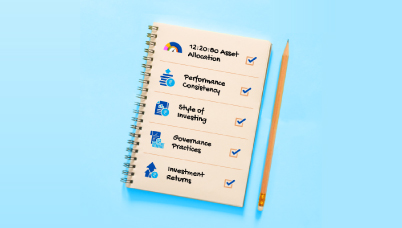Basics of Bonds and What Are Bonds?
Posted On Friday, May 27, 2016
What are Bonds?
Bonds, as an asset class, can play an important role in your asset allocation by diversifying risk, generating steady income and preserving wealth across economic and market cycles.
Bonds belong to the category of fixed income instruments. Fixed Income instruments, unlike equities, generate regular income through coupon payments and have fixed maturity periods.
How do bonds differ from other fixed income instruments?
Bonds are issued by central and state governments, corporates, banks and financial institutions, municipalities etc. and are actively traded in the institutional (wholesale) debt market.
The ability of bonds to be liquidated (sold) before the maturity period and gain from market movements with inherent market risk distinguishes it from traditional non-tradable fixed income instruments like fixed deposits and postal savings and also retirement savings like PF & PPF
Case for allocation to bond mutual funds
In India, the retail investor is largely exposed to fixed income instruments through government run assured return schemes like NSC; PPF and of course bank fixed deposits (FDs).
Unlike equities, bond markets are institutional in nature and thus have had minimal direct retail participation.
But In the last 3-5 years, there have been many instances of companies raising money by public issuances of bonds. The most popular amongst them though have been the ‘TAX-FREE’ bond issuances.
At the same time, the growing assets under management of Bond based Mutual Funds is also an indication of investors choosing to invest in fixed income through mutual funds.
The table below compares the different options for an investor in medium to longer tenure fixed income instruments.
| Description | Debt/Bond Mutual Funds | Tax-Free Bonds | Bank Fixed Deposits | PF/PPF |
|---|---|---|---|---|
| Market Risk | Medium | Low to Medium | Low | Low |
| Credit / Default Risk | Investors can choose debt funds which invests in bonds with low or zero default risk | Low Default risk in PSU bonds. | Low Default risk | Low Default risk |
| Liquidity | High, As daily redemption of units possible | Listed on exchanges, but volumes not very high | High but prepayment Penalty may be applicable | Low, withdrawal only after completion of prescribed term |
| Long Term Taxability | Capital gains , if units held for 3 years are taxed at 20% with the benefits of indexation | Capital gains , if bond held for 1 year are taxed at 20% with the benefits of indexation | Interest is taxed annually and added to your normal income | Interest is fully Exempt. Tax benefit under Section 80 ‘C’ available up to maximum limit of Rs 1,50,000 |
| Accessibility | Directly through mutual fund - online or direct | Buying /selling on exchange post primary issue | Easy | Available with designated banks or Post office |
So, although availability of tax free bonds have increased the choice but as can be deduced from the table for a retail investor, debt mutual fund schemes which in turn invest in bonds offer the best means of asset allocation from a liquidity; long term taxability and accessibility perspective.
Introducing the Quantum Dynamic Bond Fund
The Quantum Dynamic Bond Fund (QDBF) was launched on 19th May 2015 as the 9th fund from Quantum Mutual Fund with a desire to help existing and potential Quantum Mutual Fund investors to participate in the Indian debt market in a simple and cost efficient manner.
The Quantum 'Dynamic' Bond is a debt fund which has invested only in Government Bonds and AAA rated Public Sector Undertakings (PSU) bonds and thus as on date have completely avoided private corporate credit risk.
6 Reasons why you should invest in QDBF:
| 1. | QDBF offers a solution for all your long term fixed income investment needs. |
| 2. | QDBF's investment philosophy is based on SLR principle in that order. (Safety - Liquidity - Return) |
| 3. | QDBF has invested only in Government securities or AAA rated PSU bonds so far which offers high liquidity. The Fund has avoided private corporate credit risk |
| 4. | QDBF has no exit load and has low expense ratio |
| 5. | QDBF follows team driven research based approach to spot value. |
| 6. | QDBF actively manages the portfolio to try and minimize the market risks |
Investing for a period of more than 3 years will enable investors to avail the indexation benefit on Long Term Capital Gains.
Given our team based research driven approach to investments, the Quantum Dynamic Bond Fund would strive to continue to generate better performance over the benchmark returns.
Hence we suggest that having a bond fund is essential to building a healthy portfolio. We also recommend that you consult with your financial planner or guide before investing in any product.
| Name of the Scheme | This product is suitable for investors who are seeking* | Riskometer |
| Quantum Long Term Equity Fund (An Open-ended Equity Scheme) | • Long term capital appreciation and current income • Investments in equity and equity related securities of companies in S&P BSE 200 index. |  Investors understand that their principal will be at Moderately High Risk |
Disclaimer, Statutory Details & Risk Factors:
The views expressed here in this article are for general information and reading purpose only and do not constitute any guidelines and recommendations on any course of action to be followed by the reader. The views are not meant to serve as a professional guide / investment advice / intended to be an offer or solicitation for the purchase or sale of any financial product or instrument or mutual fund units for the reader. The article has been prepared on the basis of publicly available information, internally developed data and other sources believed to be reliable. Whilst no action has been solicited based upon the information provided herein, due care has been taken to ensure that the facts are accurate and views given are fair and reasonable as on date. Readers of this article should rely on information/data arising out of their own investigations and advised to seek independent professional advice and arrive at an informed decision before making any investments.
Mutual fund investments are subject to market risks read all scheme related documents carefully.
Please visit – www.QuantumMF.com to read scheme specific risk factors. Investors in the Scheme(s) are not being offered a guaranteed or assured rate of return and there can be no assurance that the schemes objective will be achieved and the NAV of the scheme(s) may go up and down depending upon the factors and forces affecting securities market. Investment in mutual fund units involves investment risk such as trading volumes, settlement risk, liquidity risk, default risk including possible loss of capital. Past performance of the sponsor / AMC / Mutual Fund does not indicate the future performance of the Scheme(s). Statutory Details: Quantum Mutual Fund (the Fund) has been constituted as a Trust under the Indian Trusts Act, 1882. Sponsor: Quantum Advisors Private Limited. (liability of Sponsor limited to Rs. 1,00,000/-) Trustee: Quantum Trustee Company Private Limited. Investment Manager: Quantum Asset Management Company Private Limited. The Sponsor, Trustee and Investment Manager are incorporated under the Companies Act, 1956.
Related Posts
-

Do You Need to Update Your KYC/Modify KYC?
Posted On Friday, Apr 26, 2024
New KYC Regulation Effective April 1st 2024
Read More -

Are You Stuck in the Past or Ready for a Secure Future?
Posted On Wednesday, Jun 29, 2022
The ever-growing number of mutual fund schemes on offer has made it challenging for investors to select the best and most suitable one.
Read More -

Received an Increment? Step-up Your SIPs
Posted On Wednesday, Jun 01, 2022
For instance, let’s assume that you have registered for a monthly SIP of Rs 5,000 for a 10-year period and later on try to step-up the SIP at an annual frequency, say by Rs 500. In the first year...
Read More



